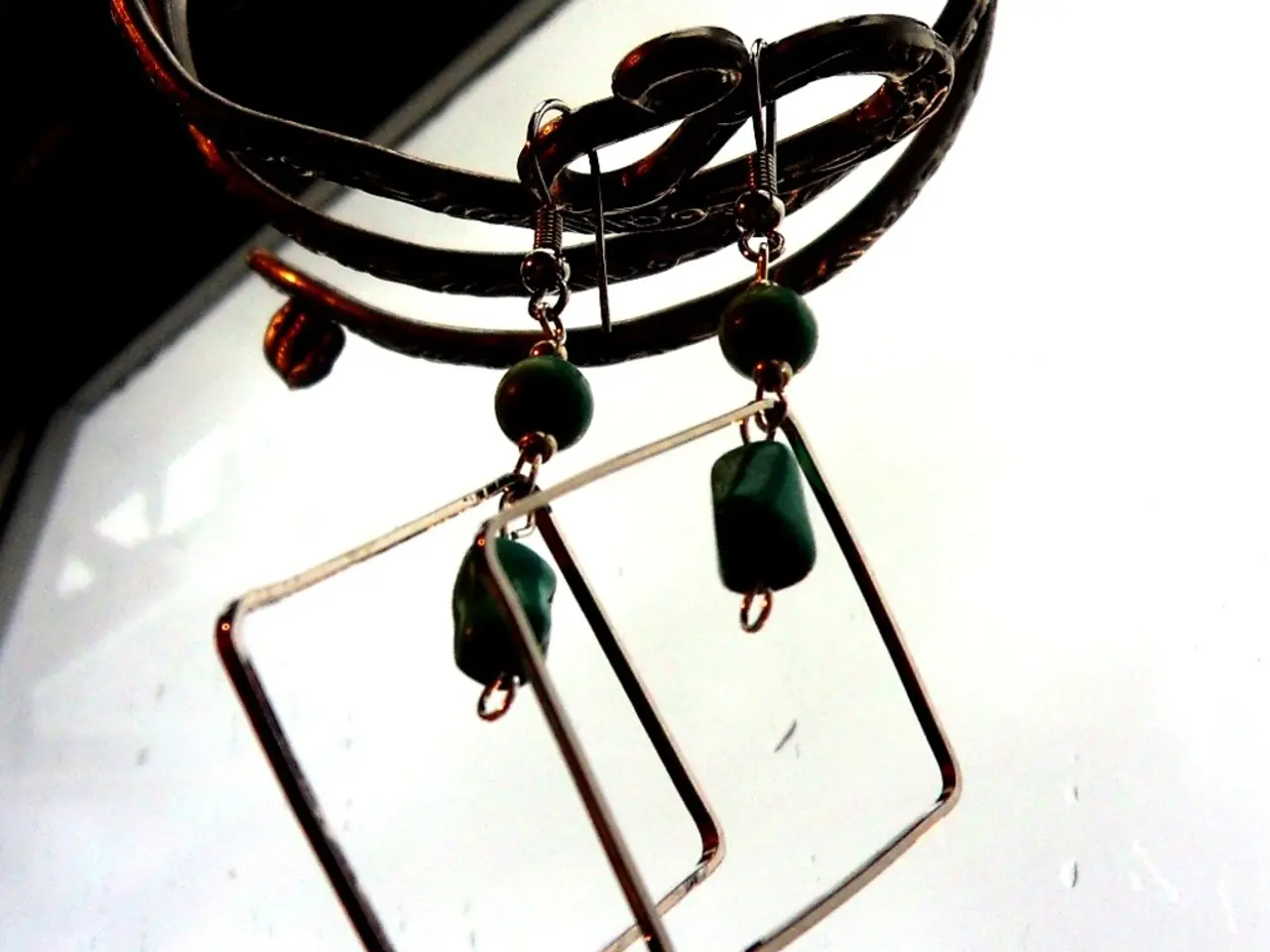Ear blockage and persistent ringing: Understanding origins and remedies
Persistent clogged and ringing ears can be a nuisance and cause discomfort. Several factors can contribute to this condition, and understanding these causes can help in seeking appropriate treatment.
One common cause is Eustachian tube dysfunction, a condition where the Eustachian tube, connecting the middle ear to the back of the throat, becomes blocked. Allergies, colds, and sinus infections are common triggers, leading to feelings of pressure and fullness in the ear[1][2][3].
Another culprit is excessive earwax buildup, which can block the ear canal, causing muffled sounds and discomfort. Professional cleaning is recommended to address this issue[3].
Middle ear infections (otitis media) can also lead to clogged ears, causing pressure and pain. This condition is often accompanied by difficulty hearing[3].
Sinus issues, particularly sinus infections, can cause excess fluids to become trapped in the ears, leading to clogs[5].
Meniere's disease, a chronic inner ear condition, often results in symptoms such as pressure, dizziness, and ringing in the ears[3].
Treatment options vary depending on the cause. For Eustachian tube dysfunction and ear congestion, antihistamines, nasal corticosteroid sprays, saline rinses or sprays, decongestants, and nasal decongestants may be prescribed[2]. For earwax buildup, professional ear cleaning is recommended to avoid pushing wax further into the ear[3].
For middle ear infections, antibiotics, pain relief, and audiologist evaluations may be necessary[3]. For sinus infections, antibiotics or antiviral medications and nasal decongestants may be prescribed[5].
For Meniere's disease, medications to manage symptoms like vertigo and tinnitus, as well as lifestyle changes such as dietary adjustments and stress management techniques, may help[3].
If symptoms persist, worsen, or are accompanied by severe pain, dizziness, or hearing loss, consulting an ENT specialist or healthcare provider is recommended[1][2][3].
[1] Mayo Clinic. (2021). Eustachian tube dysfunction. https://www.mayoclinic.org/diseases-conditions/eustachian-tube-dysfunction/symptoms-causes/syc-20352103 [2] American Academy of Otolaryngology—Head and Neck Surgery. (2021). Eustachian Tube Dysfunction. https://www.enthealth.org/conditions-procedures/conditions/eustachian-tube-dysfunction [3] Cleveland Clinic. (2021). Clogged ear. https://my.clevelandclinic.org/health/diseases/17978-clogged-ear [4] American Speech-Language-Hearing Association. (2021). Earwax. https://www.asha.org/public/hearing/Earwax-Cerumen/ [5] American Academy of Otolaryngology—Head and Neck Surgery. (2021). Sinusitis. https://www.enthealth.org/conditions-procedures/conditions/sinusitis
- Persistent ear infections, such as otitis media, can lead to clogged ears and cause related health issues like difficulty hearing.
- Excessive buildup of AQ (earwax) can block the ear canal, resulting in muffled sounds and discomfort.
- Chronic inner ear conditions, like Meniere's disease, may cause symptoms such as pressure, dizziness, and ringing in the ears, similar to those associated with health-and-wellness issues like bipolar disorder.
- Crohns disease, a type of inflammatory bowel disease, may not directly lead to clogged ears, but its symptoms and treatments (like medications and stress management) could indirectly affect ear health.
- Predictive science in health-and-wellness fields may help develop more effective treatments for conditions like NSCLC (non-small cell lung cancer) and psoriatic arthritis, freeing up resources for investigating lesser-known ear health complications.
- Maintaining good health-and-wellness through regular check-ups, a balanced diet, stress management, and other protective measures could help reduce the likelihood and severity of health problems like ear infections and related conditions.




